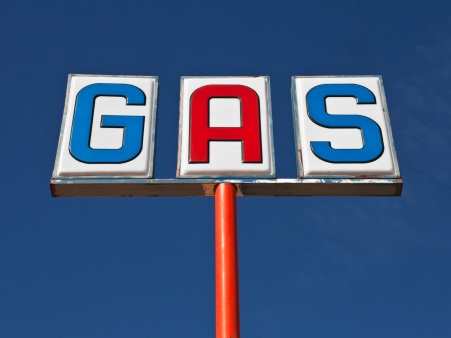The Syrian crisis drove oil prices to $111 a barrel. The crisis may well be worse if the U.S. strikes government installations there with drones. If Bashar al-Assad’s government reacts with more actions against civilians, the cycle of action and reaction could last for weeks, and perhaps beyond. The question of how oil could press gasoline prices higher, an issue that has been dormant for months, should cause anxiety again.
The price of oil does not pass through to gas prices directly because of the sources of the crude and refinery and transportation costs. However, it does pass through eventually.
Gasoline prices in the United States continue to run well below those of a year ago. The cost of an average gallon of regular nationwide stands at $3.542, compared with $3.75 on the same day in 2012. As some historical evidence the figure could go much higher very quickly, prices have spiked sharply three times in the past two years, and approached $4 in March and April of 2012.
The discussion of a rapid run up in gas prices quickly comes around to U.S. gross domestic product. Economists have not built a consensus model about what a penny increase does to consumer spending, or to the margins of companies that use oil-based fuels or petrochemicals.
The swiftest reaction among public companies is usually from airlines, an industry in which jet fuel prices may determine the difference between profit and loss. Passenger carrier shares have sold off sharply in the past two days, a trend that likely will continue if oil’s advance does.
At the core of the analysis of gas prices and their effect is consumer reaction. Often this analysis is done based on households with four people. The mid-point of the analysis often starts with national median household income ,which is about $51,000 but actually has dropped in real dollars in the past decade. The logic for the damage done by higher gas prices is usually the same. The lower middle class and those closer to the poverty line have to curb discretionary spending, to the extent that they have any discretion at all.
Gasoline prices will go up, and soon. With that, the guessing game on injury to economic growth will be stirred up again.
The Average American Is Losing Their Savings Every Day (Sponsor)
If you’re like many Americans and keep your money ‘safe’ in a checking or savings account, think again. The average yield on a savings account is a paltry .4% today, and inflation is much higher. Checking accounts are even worse.
Every day you don’t move to a high-yield savings account that beats inflation, you lose more and more value.
But there is good news. To win qualified customers, some accounts are paying 9-10x this national average. That’s an incredible way to keep your money safe, and get paid at the same time. Our top pick for high yield savings accounts includes other one time cash bonuses, and is FDIC insured.
Click here to see how much more you could be earning on your savings today. It takes just a few minutes and your money could be working for you.
Thank you for reading! Have some feedback for us?
Contact the 24/7 Wall St. editorial team.




